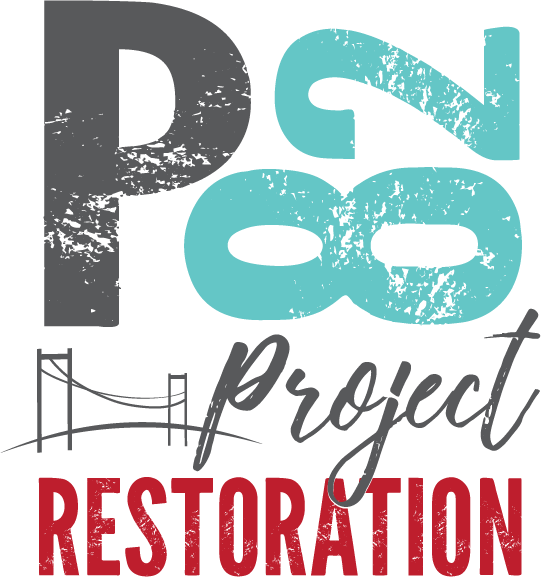My husband and I host P82’s caregiver support group for families impacted by serious mental illness, but I need this meeting as much as anyone else. It’s a place to gather twice a month with other parents, spouses, and siblings to hold each other’s hands, albeit virtually, for a few moments and remind each other of what is true and good. A cofferdam, if you will, against the strong waters of life with mental illness.
“Come to me, all who labor and are heavy laden, and I will give you rest,” my husband read from the book of Matthew at a recent meeting. Boy, did I need to be reminded of this rest. Rest from the injustice without and the tempest raging in my heart. I need the examples of the other families in our group who day in and day out sacrificially advocate and support their loved ones in this broken, messed up system and world. I need to look up again, and yet again, to my gentle savior.
Just days before this meeting, I learned that several Arizona legislative initiatives that sought to bring greater accountability and new secured residential treatment facilities for our most vulnerable seriously mentally ill were going down in flames. I’ll attempt to explain what happened here as brief as possible:
- $25 million dollars earmarked for new secured residential treatment centers was swept into a separate bucket of money for “homelessness” in what appears to be a compromise between House and Senate leadership with the Governor. The ACLU and other disability organizations have the ear of Gov. Katie Hobbs and they strongly disfavor very sick individuals, who fail in other settings, being court ordered to stay at secured therapeutic facility until they are able to transition into community.
These secured residential facilities, like what we now have for dementia patients, have the potential to meet a great need for those people who live with SMI and require more humane support. This would be for the individuals who are at risk of homelessness or imprisonment. I cannot think of a better use of money to help end homelessness than focusing on this need. It is a compassionate alternative to jail or even death. Sadly, because of misunderstanding and/or dated philosophy, there are many who strongly oppose this forward-thinking solution.
The ”Arizona Peer and Family Coalition” even tweeted their support for this sweep,
“Wonderful to see less money in the budget for secure housing! Kudos to Governor Hobbs for recognizing that locking up those with mental illness is not only costly but inhumane! We need to fix the gaps in our system, NOT lock us up and strip away our right!”
I have never met a single person who wants to lock up people who live with SMI and take their rights away, yet that is exactly what we’re doing by allowing our prison system to be the de facto mental illness system. The families I do know are desperate for compassionate, humane, and scientific treatment. This coalition does not speak for them.
We need focus and leadership. Both are missing here.
*For a deeper dive on the subject of homelessness, I recommend Stephen Eides’s “Homelessness in America, the History and Tragedy of an Intractable Social Problem.”
- Senate bill 1291 was making its way through the House and Senate that sought to bring reform to the probate court system to prevent elder abuse, rightly so. But it moved quite quickly and was not heard in either the health and human services committees. It also did not have the full votes needed from Democrats to pass, so another compromise was struck. A bill that failed to make it through committees in prior years was tacked on. This amendment, which is a complete bill on its own, was not heard in ANY committee, therefore different points of view were not heard nor were legislators given the opportunity to properly vet it.
The amendment has to do with Supported Decision Making. This would be a new option for people with disabilities in lieu of having a guardian. You can read an excellent editorial on this here. Given how guardianship is often discouraged or even ignored by some mental health providers, I am very concerned that this will cause more harm for vulnerable families than good. Mental health attorney Josh Mozell testified in previous years that he did not understand the need for the Supported Decision-Making option since Power of Attorney is already an option.
This cobbled together bill passed in both the House and Senate unanimously in what seems like a slap in the face to the needs of the SMI community and their families, while trampling on the legislative process to gain the Governor’s signature. It currently sits on her desk with the full support of the ACLU and left leaning disability organizations.
*For a deeper dive on how civil rights and disability organizations ignore the needs of the most severely mentally ill, read DJ Jaffe’s “Insane Consequences: How the Mental Health Industry Fails the Mentally Ill.”
- Finally, the worst compromise of them all was SB1710. This bill sought to remove oversight of our state’s only long-term hospital for the seriously mentally ill from the same entity that runs it and create an entirely separate governing board. It also looked to remove the 55-person cap for Maricopa County. In a stunning turn of events, the entire bill was struck, and a completely different amendment was added at the last minute as the governor signaled, she would veto it.
I continue to be amazed at civil rights proponents who seem to have little regard for the oversight and accountability of our most vulnerable mentally ill at the Arizona State Hospital. It’s almost as if they would like to let the hospital completely close as the horror stories mount up. Hmmm…I wonder?
Read a great synopsis of what happened with SB1710 by former head of the Arizona Department of Health Services, Will Humble here.
My husband and I are often close to tears after our caregiver support group meetings. We wish everyone could meet these precious families and understand the deep injustice they often live with, while at the same time they are some of the bravest and most compassionate people you could ever know. The issues I mention above are not only incredibly unjust, but they are personal.
As I typed this out, I thought of each of them. Most cannot share their stories openly. They want to protect their loved one or they don’t want to jeopardize losing the meager services they have acquired. This makes advocacy at the legislative level so challenging as this group of people is extremely marginalized and not a large voting bloc. So, we continue to speak up as we have opportunities, and we continue to pray and look to the one who bids us to come. So weary and heavy laden we come.
And will you continue to join us in speaking up and praying for this group of people in our community who are in desperate need of being seen? Thank you. Your partnership is invaluable, you are making a difference.
Deborah Geesling

